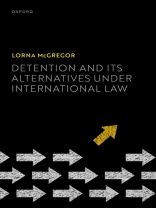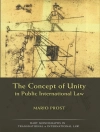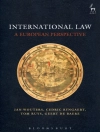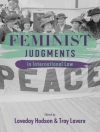In theory, international law provides a clear framework for ensuring the rarity of detention by either characterising a detention practice as inherently arbitrary or treating it as a measure of last resort. However, some critics have argued that international law prioritises procedural safeguards, leaving the international law on the legitimacy, necessity, and proportionality of detention and its alternatives underdeveloped. Detention and its Alternatives under International Law analyses the current state of the international law on detention and its alternatives within national law and policy. It addresses armed conflict, counterterrorism, criminal justice, mental health, migration, public health, and social care. The book discusses a number of topics such as: shortcomings in how international law addresses structural inequality and discrimination; the level of scrutiny applied to the evidence supporting decisions to detain; and the availability and proportionality of alternatives to detention and their compatibility with human rights. All chapters analyse how new and emerging technologies affect decisions to detain, as well as the nature of alternatives to detention. Without conflating different forms of detention, the book proposes key means of making detention a true measure of last resort. Detention and its Alternatives under International Law will be a valuable resource to practitioners and scholars working on the right to liberty or the underlying policy areas in which detention is employed as a tool.
Lorna McGregor
Detention and its Alternatives under International Law [PDF ebook]
Detention and its Alternatives under International Law [PDF ebook]
Buy this ebook and get 1 more FREE!
Language English ● Format PDF ● Pages 240 ● ISBN 9780192635969 ● Publisher OUP Oxford ● Published 2023 ● Downloadable 3 times ● Currency EUR ● ID 9233915 ● Copy protection Adobe DRM
Requires a DRM capable ebook reader












